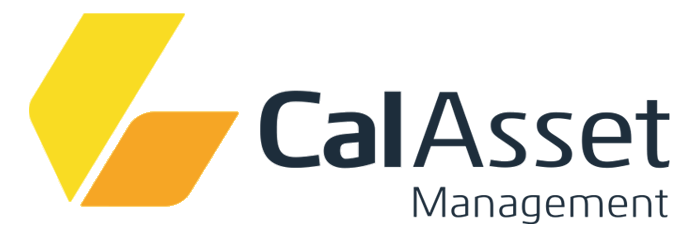In this week's edition:
· U.S. Equities Closed Higher, After the Supreme Court Struck Down President Trump’s Reciprocal Tariffs.
· Gold Prices Rose 1.30% W/W, as the Ruling Against Global Tariffs Reinforced Its Appeal as a Hedge Against Policy Risk.
· Ghana’s Treasury Auction Was 22.40% Oversubscribed, With Yields Plunging Sharply Across the Curve.
· Ghanaian Equities Posted a Record Weekly Surge, as the Composite Index Jumped 15.06%, Lifting YTD Returns To 34.61%.
- Kindly click to view the full report: Global Market Update - February 23, 2026
AROUND THE GLOBE
· United States GDP Growth Slows Sharply in Q4 2025
o The U.S. economy grew at an annualized 1.4% in Q4 2025, sharply down from 4.4% in Q3 and well below forecasts of 3%, marking the weakest expansion since Q1 (-0.6%). Consumer spending moderated, with goods purchases declining, while exports reversed prior gains and government spending contracted sharply due to the shutdown, subtracting nearly 1 percentage point from growth. In contrast, fixed investment strengthened, supported by intellectual property and equipment spending. For full-year 2025, GDP rose by 2.2%, slower than 2024’s 2.8% growth.
· United States Trade Deficit Widens More Than Expected
o The U.S. trade deficit widened sharply to $70.3 billion in December 2025, well above expectations, as exports fell by 1.7%, weighed down by non-monetary gold, while imports rose by 3.6%, led by computer accessories. For full-year 2025, the trade gap totalled $901.5 billion, slightly narrower than 2024 but still among the largest on record. While deficits with the EU and China narrowed, gaps with Mexico, Vietnam, and Taiwan widened significantly.
· Eurozone Current Account Surplus Narrows Sharply
o The euro area’s current account surplus narrowed to €34.6 billion in December 2025, down from €45.9 billion a year earlier. The goods surplus declined as imports rose faster than exports, while both primary income and services surpluses weakened. For full-year 2025, the surplus shrank markedly to €261.4 billion, compared with €412.3 billion in 2024. On a seasonally adjusted basis, the surplus fell to 1.6% of GDP, highlighting a softer external position.
· Japan Inflation Eases to Lowest Since 2022
o Japan’s annual inflation slowed to 1.5% in January 2026, down from 2.1% in December and the lowest since March 2022. Food inflation eased notably, led by slower rice price increases, while transport, healthcare, and household goods also saw softer price growth. Energy prices remained negative due to subsidies, and education costs continued to decline. Core inflation slipped to 2.0%, aligning with the central bank’s target. On a monthly basis, consumer prices fell 0.2%.
- GHANA
· Ghana Plans $2.7 Billion Bond to Support Cocoa Sector
o Ghana plans to raise about 30 billion cedis (approximately $2.7 billion) through a syndicated domestic bond issuance to finance operations in the cocoa sector. The funds will support the Ghana Cocoa Board (CocoBod), which oversees production, purchasing, and export activities in the industry. The move comes amid ongoing reforms and funding pressures within the cocoa sector, a key foreign-exchange earner and critical pillar of Ghana’s agricultural economy.
- AFRICA
· South Africa’s Inflation Eases to 3.5% in January 2026
o South Africa’s annual inflation rate edged down to 3.5% in January 2026, from 3.6% in December, slightly above expectations of 3.4%. Lower transport costs, driven by a 3.7% drop in fuel prices, weighed on headline inflation. However, price pressures persisted in key categories, with housing and utilities at 4.8% and food inflation at 4.4%, supported by rising meat prices amid foot-and-mouth disease disruptions. Core inflation ticked up to 3.4%, near a one-year high, while monthly CPI rose by 0.2%, unchanged from December.
· Nigeria’s Inflation Rate Falls Again, Marking 10 Months of Decline
o Nigeria’s inflation slowed for the 10th straight month, easing to 15.10% in January 2026 from 15.15% in December, the lowest since November 2020 (14.89%). The decline was supported by a stronger currency that lowered import costs. Food inflation dropped to 8.89%, its sixth monthly fall, driven by cheaper cooking oil, grains, and vegetables. Price growth also eased in recreation & culture (1.52% vs 12.12%), clothing & footwear (10.91% vs 13.16%), and alcoholic drinks & tobacco (13.62% vs 14.98%), but rose sharply in education (22.48% vs 16.36%). Core inflation softened for the seventh month to 17.72%, the lowest since October 2022. Month‑on‑month, the CPI fell by 2.88% after a 0.54% rise previously.
Sources: Bloomberg, Reuters, Trading Economics
